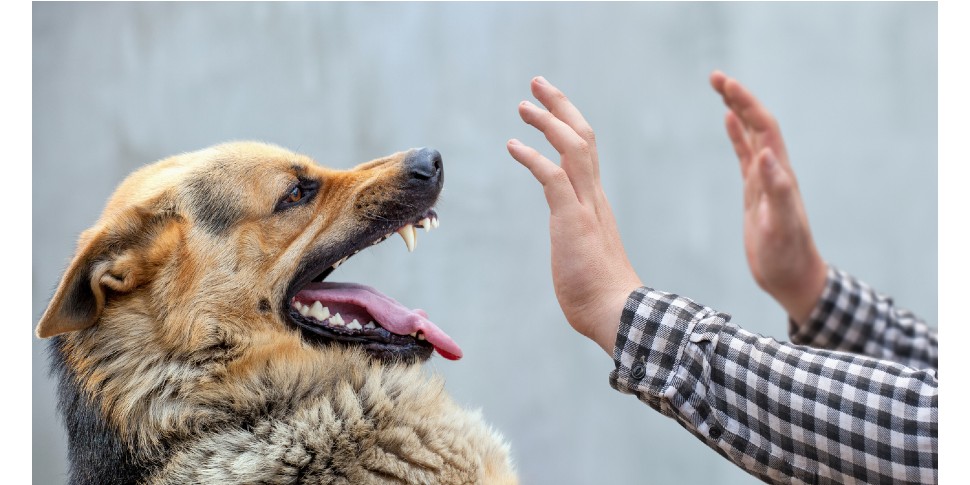Why Does My Dog Bite Me?

Your dog recently joined the household, and you bonded right away. He’s chasing after some toy rope and trying out tug of war with you—you both are having fun.
Suddenly, he takes his attention away from the game and bites into your unoccupied hands. A yelp accompanies your shock. But rather than being painful, it is just a sensation of pressure. This behavior shocks you, so you stop playing right away to prevent yourself from encouraging it. But why on God’s green earth does your dog bite you? Whatever happened to “never bite the hands that feed you?”
Well, in this post, you’ll discover everything you need to know and more about why you’re dog might be biting you, so keep reading!
Why Dogs Bite
When threatened or startled
It is most common for dogs to bite people who seem to threaten them somehow. Even domesticated dogs exhibit this instinct. So, everybody who interacts or deals with a dog must understand what might trigger such aggressive behavior. When you startle a dog, you provoke it to bite. Also, jumping on dogs from behind or suddenly waking them up can prompt them to bite.
As a form of defense
Occasionally, dogs will bite to defend themselves, their territory, or any pack member. Dog mothers protect their pups fiercely as well.
A dog can bite you if you run away from it, especially during play. Taking off could trigger the dog’s herding behavior or predatory pursuit, thinking it is part of the game.
Anxiety and illness
In some fearful, critical conditions, an anxious dog might bite anyone who goes close. Conditions might include being abused by a passerby or left helpless by the side of the road. It might even be something you take for granted, such as dealing with a loud, deafening sound. Also, an ill or troubled dog may not want to be touched or approached by even those he loves.
Pro tip: Knowing your dog’s body language and the warning signs it gives before biting is essential. There are numerous symptoms, including snapping growling, rigid posture, raised fur, and constant tail wagging. If you own a dog or are interacting with one, stay aware of these signs.
How To Deal with Biting Dogs
A dog owner is responsible for training and controlling the dog at all times. If your dog bites you, it’s your responsibility to correct its behavior and prevent it from happening again.
You must do anything you can to prevent your dog from biting and to keep others safe:
- Get your dog socialized. Let your dog interact and meet people of different classes, including kids, disabled persons, and the aged, under calm and positive conditions.
- You should frequently expose your dog to different situations like loud noises, other dogs, bicycles, large machines, and anything else your dog might be wary of. Train your pets and maintain positivity at all times.
- Understand when your dog may be becoming aggressive and pay attention at that time. A dog that can’t be controlled or has bad behavior may need to be removed if things go south.
- You should not punish your dog with physical force, violence, or aggression. Try out some positive reinforcement, like praises and dog treats. Make sure, though, that you keep these treats out of reach, such as in a dog treat bag. Using a shock collar works too, but it may be a means of last resort. It is far more effective to consistently reward your dog for good behavior, as dogs strive to please their owners.
- Dogs should always be leashed or confined. Learn your dog’s behavior before letting it out at all. Always keep an eye on your dog. If possible, use a dog crate.
If your dog has aggressive or fearful tendencies, you should warn others. Your dog needs to be strictly controlled when near people or other animals.
